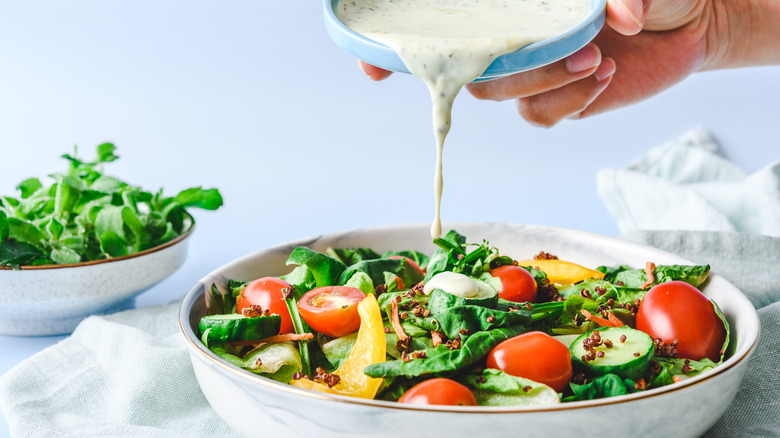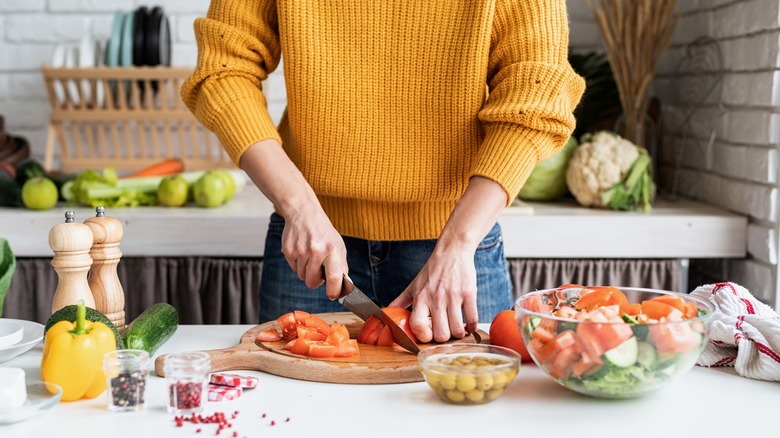The Best And Worst Salad Dressings For Your Health
Let's be honest; salads get a lot of their flavor and zesty appeal from salad dressings. Some salads even have the dressing in their title (we're talking about you, Caesar salads). It's widely known that salads are healthy and nutritious meal choices, thanks to leafy greens like romaine, kale, and spinach. But, how good are salad dressings for your health?
If you're thinking about skimping on dressings, you may want to think twice. According to EatingWell, the fat found within salad dressings actually helps your digestive system by supporting better absorption of nutrients from the salad.
Rather it's better to limit the calories, fat content, and amount of sugar in salad dressings if you're looking to improve your health. "The higher fat, higher calorie creamy dressings such as Caesar, blue cheese or ranch pack about 110-120 calories and 12 grams fat per 2 tablespoons, which is almost double of some vinaigrettes," says registered dietitian nutritionist Lauren Harris-Pincus. Thousand island and French dressing, also find themselves on the list of the worst salad dressings for your health, as they're often loaded in sugar and sodium.
Alternatively, the best salad dressings should be low in sugar and sodium, and they should emphasize spices and herbs, shares Men's Journal. This includes vinaigrettes, yogurt dressings, and classic olive oil and lemon juice (via Eat This, Not That!).
The best salad dressings to buy and make at home
Believe it or not, you'll also want to make sure your salad dressing contains zero preservatives, dyes, and little vegetable oils (per Eat This, Not That!). Also, avoid fat-free dressings, and instead make sure your salad dressing of choice contains healthy fats. Some excellent healthy fat choices, Healthline points out, are avocados, extra virgin olive oil, and full-fat yogurt. Most of these can be found in salad dressings too.
If you want even more control, making your own dressing may be a great option. For instance, vinaigrettes are healthy, simple, and extremely versatile. The base typically consists of olive oil, salt, and pepper, then other ingredients get added in based on the flavor of the vinaigrette. For a balsamic vinaigrette, dijon mustard and garlic get added to the base (via Healthline). But, for an apple cider vinaigrette, you'll want to add apple cider vinegar, lemon juice, honey, and dijon mustard. On the other hand, if you're craving something creamy, Healthline recommends mixing greek yogurt, fresh chives, dried dill, and other spices to make a protein-packed ranch alternative.
However, if you don't have time to whip up a homemade salad dressing, that's okay too. There are plenty of healthy store-bought bottles to choose from. EatingWell recommends shopping for olive oil and lemon or choosing a Whole-30-approved salad dressing brand as this stamp signifies there's zero sugar in the bottle.


